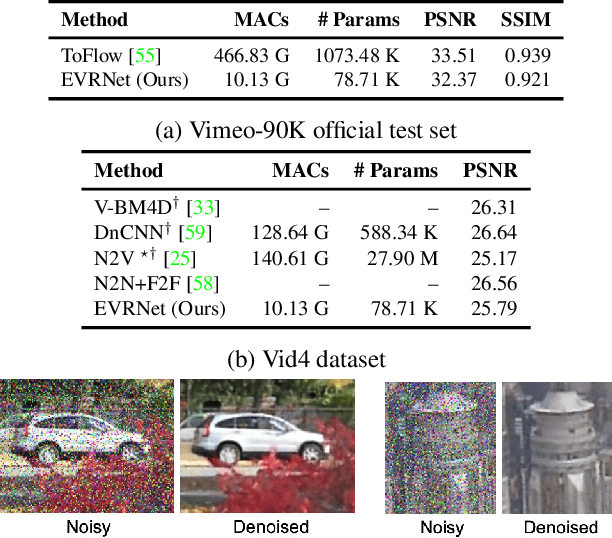Vikram Mulukutla
EVRNet: Efficient Video Restoration on Edge Devices
Dec 03, 2020



Abstract:Video transmission applications (e.g., conferencing) are gaining momentum, especially in times of global health pandemic. Video signals are transmitted over lossy channels, resulting in low-quality received signals. To restore videos on recipient edge devices in real-time, we introduce an efficient video restoration network, EVRNet. EVRNet efficiently allocates parameters inside the network using alignment, differential, and fusion modules. With extensive experiments on video restoration tasks (deblocking, denoising, and super-resolution), we demonstrate that EVRNet delivers competitive performance to existing methods with significantly fewer parameters and MACs. For example, EVRNet has 260 times fewer parameters and 958 times fewer MACs than enhanced deformable convolution-based video restoration network (EDVR) for 4 times video super-resolution while its SSIM score is 0.018 less than EDVR. We also evaluated the performance of EVRNet under multiple distortions on unseen dataset to demonstrate its ability in modeling variable-length sequences under both camera and object motion.
 Add to Chrome
Add to Chrome Add to Firefox
Add to Firefox Add to Edge
Add to Edge